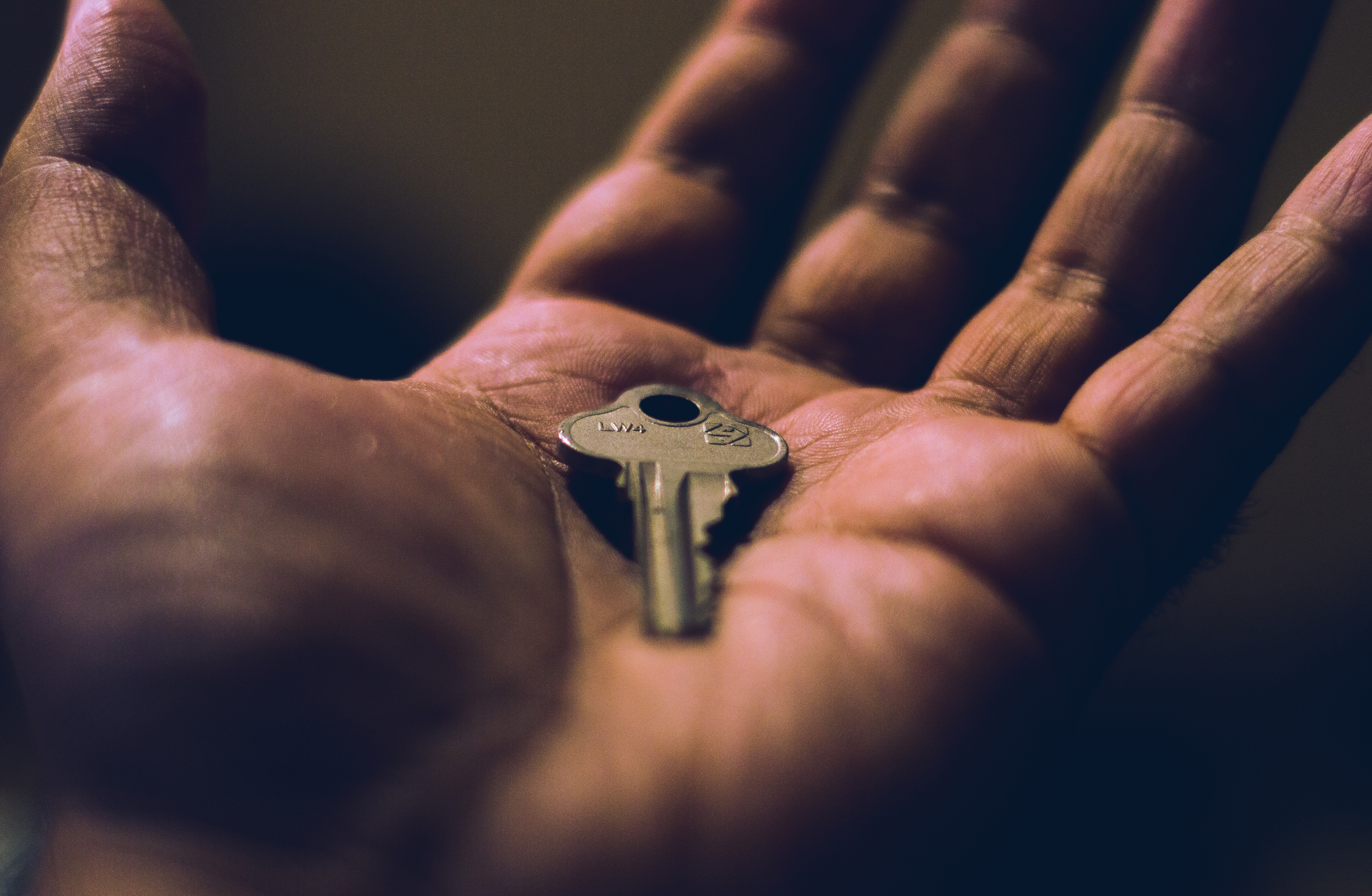Trust as a Service: How Blockchain will gear up the legal system

Oumnia El Khazzani
over 7 years ago

Blockchain is a buzzword, but how much of a game changer will it be for the people who have nothing to do with it?
Among these people is Joe, a fitness instructor based in New York. This year, Joe has decided to spend his summer in Barcelona. He searches for a flat online in advance and finds a nice apartment to rent. Joe has a Skype call with the landlord, and on video, the flat looks perfect. He agrees to rent the flat, and the landlord asks him to transfer the deposit. The landlord needs to be sure that Joe will rent the apartment and the deposit is the only way to proof Joe’s intentions. If Joe refuses to pay the deposit in advance, the landlord will continue searching for another person, and the flat might slip away from him.
The deposit is three times the monthly rent, which is 3,600 EUR. Joe starts to feel uncomfortable since he just met the landlord and spoke to him only once on Skype. What if the landlord is a fraud? What if he disappears with Joe’s money and the flat?
This is the typical situation where an escrow agent could create trust. But it is cumbersome and pricey for Joe to find an escrow agent that he trusts in a country that he doesn’t know and in a language that he doesn’t speak.
Creating Trust through Distributed Ledger Technology
In the end, Joe’s problem is related to trust. Joe’s situation is a perfect example where the blockchain technology can help out and take away his worries by establishing trust between him and the landlord.
New solutions are popping up that enable Joe to deposit his money in a decentralized application (dApp) with smart contract functionality. In Joe’s example, nobody would be able to withdraw the money that he deposited on the smart contract unless both parties agree. The fee that a decentralized application charges for the escrow service will be a fraction of what Joe would have spent on the escrow agent and the experience of using the dApp will most probably be much smoother.
For the vast majority of cases where everything works as planned the blockchain will take over all the work and assure that the funds are safe for all the parties involved. For the few cases where things do not work out as planned some escalation and intermediation service is necessary.
Business Relationships that require Trust
Joe’s example was a quick introduction to how blockchain technology can transform the way we do business. The implications of blockchain technology and the possible use cases go far beyond this.
Not long ago, in the early days of the internet, customers were skeptical about making payments online. Even today, if you are not ordering from Amazon, but instead from an unknown small merchant or a private person, how can you be sure that you will get what you ordered after you made the payment? Smart contracts will bring the solution for all these trust-related problems that come up when we are doing business over the internet.
Trust is also needed when we do business offline. Let’s assume you buy a new flat from a real estate developer. The real estate developer needs the money up front to be sure you have the money to pay; on the other hand, if you pay the money upfront and the real estate developer goes into bankruptcy, you may end up losing your money and the flat you purchased.
Trust-related economic problems go far beyond the B2C market. What about a company that buys machinery from a supplier? The company that is purchasing wants to be sure that all the parts are included and the machinery is working as planned. What if a Marketing department of a medium-sized business is purchasing a Software as a Service contract from a small and innovative marketing analytics company that charges 10,000 USD per year? The firm wants to be sure that the analytics company is still operating after ten months. The number of situations where trust is required for doing business is countless. Spinning this analysis further we quickly understand that trust is a huge deal in any market setting.
Blockchain technology and smart contracts are in the process of creating trust for all these kinds of situations. The price we will pay for the service of using blockchains and the convenience of using it will soon represent a much better deal than all the other mechanisms to create trust in these situations.
Running Contracts on a Blockchain
In 2018 we are on the edge of dApps that enable binding contracts between private parties in the form of smart contracts. Many types of contracts have the potential to move to the blockchain. One example could be marriage contracts that specify what will happen to the cryptocurrency assets of a couple. If the spouses trigger the divorce event, the assets will be divided according to the terms in the smart contract. For sophisticated contracts, the input of lawyers will be required, and a combination of human and computer intelligence can assist customers in drafting their contracts. Law firms that are developing technology in-house and want to be at the forefront of this new technological revolution will end up with a competitive advantage.
Legal engineering is a new phenomenon with the objective to change the way lawyers draft contracts. Projects such as Legalese are trying to build a system in which lawyers can draft contracts just as developers code software. For this purpose, Legalese is developing an entirely new domain-specific language taking into account the semantics and logic of law. Through a compiler, the code will then be transformed into natural languages such as English and will eventually become executable on the blockchain. For lawyers that have no familiarity with coding special user interfaces will be created that enable them to insert clauses in a drag and drop way. Agrello is another platform in the legal engineering sphere. Agrello secures legal contracts on the blockchain and writes them in machine-readable code. It offers a service to verify identities which is compliant with EU regulation. The user identity is then stored on the blockchain. Once their identity is verified users can create, sign and manage contracts online.
The potential for systemic change is even more pronounced once blockchain technology is combined with another technological mega-trend: artificial intelligence. In the not so distant future, it will become possible that an AI can automatically translate a legal contract into a smart contract. Once this is happening a lot of legal workflows can be fully automated, and the efficiency of the legal system will increase tremendously.
The IBM Hyperledger Fabric represents an easy way for law firms to get started with blockchain technology. It counts with a pluggable architecture making it easy to build things even for developers without previous blockchain experience. It is mostly directed towards integration projects and represents a good way for companies to share specific information in their database without disclosing the entire database.
Verification of Information
Trust is not only about eliminating the risks between two business parties. It is also about being able to verify claims by third parties. Imagine a company that is required to verify the identity of a new customer. Currently, online identity verification solutions are cumbersome to use for end users and represent significant costs for enterprises. At the same time, several blockchain projects are trying to develop solutions to provide identity verification services. Some of these solutions are built on the Ethereum blockchain whereas others are built on independent blockchains. In the not so distant future customers will be able to verify their identity through the blockchain.
Besides identity, there are many other things that blockchain technology can verify. It may be interesting to know when a document was created and who digitally signed it; all things a distributed ledger could inform us.
Universities and other educational institutions may soon issue digital certificates on the blockchain. Let’s assume an Italian citizen and non-native English speaker is applying to a university in Australia, which requires a certain minimum score in the standardized TOEFL test of English language proficiency. A digital certificate issued on the blockchain could provide proof of the applicant’s language proficiency. Since the TOEFL test generally expires after two years, it is also important to verify when the certificate was issued. In the same way PwC, an accounting firm, could soon be able to verify whether its job applicants completed the required CPA exam.
When it comes to signing legally binding contracts or issuing verified copies of certificates we currently depend on the services provided by notaries. Since many of these services can be performed more efficiently on the blockchain notaries may be even more affected by blockchain technology than law firms.
Concerning enforcing intellectual property laws, patents, and trademarks, blockchain technology has a vast potential. It may be used to provide evidence of creatorship, for registration and clearing of IP rights and for tracing back the distribution of unregistered IP. Blockchain technology will play its role when it comes to eventually recover the economic losses suffered from the illegal distribution of music. With blockchain, anyone can validate whether a product is authentic or represents a fake copy.
Law firms that are specialized in blockchain will be in a good position to accompany the transition of entire industries dependent on intellectual property rights to a new area.
Government entities currently manage property rights through centralized registers. Hence in this field blockchain technology will only move as fast as regulators will allow it to move. However, especially in developing countries where sophisticated systems to verify the ownership of properties do not yet exist, blockchain technology could be the solution of choice when it comes to establishing transparent and credible property records. The blockchain as a decentralized digital ledger presents the ideal features such as immutability for ensuring property rights.
Property registries are not the only registries that can be moved to a blockchain. A project by the city of Dubai and IBM aims to bring business registration to the blockchain. To streamline the process of registering a business, it will be possible to open and close a company on the blockchain. Combined with other emerging blockchain solutions such as identity verification this can tremendously simplify the process of doing business. Opening, maintaining and closing a company is currently a hassle in many jurisdictions. It no longer needs to be with blockchain technology.
How far can Blockchain Technology take Law?
The Global Legal Blockchain Consortium, comprised of law firms and other industry key players, recognizes the disruptive potential that blockchain technology has for the legal system. It is evident that the legal industry, constructed around the concept of trust, will be among the most affected by blockchain, a technology that delivers trust.
Despite the promises that blockchain technology brings, it will not be able to replace all domains of law. Smart contracts work perfectly fine as long as both contract parties are on the same page but whenever two parties disagree more advanced solutions will be necessary. The need for arbitration in situations of conflict will not disappear. The higher the degree of complexity of legal services provided the less likely it is that the blockchain can automate the workflow.
Still, the next decade will likely bring significant technological changes so that businesses and individuals can engage in meaningful contract relationships without the help of notaries and solicitors.